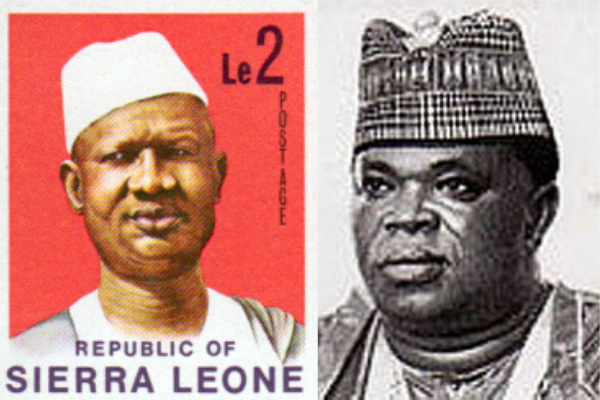The colony of Freetown was established in 1787 and became a haven for slaves liberated by the Royal Navy’s antislavery patrols. Some of the slaves returning became part of the elite Creole society that believed it was higher in status than the natives. The returners and members of the Creole society believed their education gave them an advantage. They used this advantage to establish themselves in the civil service and became the point of contact with both European and Lebanese businesspeople.
The first modern political movement in Sierra Leone was started by Wallace Johnson. It was called the West African Youth League and its membership included all types of people in Sierra Leone. After the 1939 war, the British administration thwarted the growth of the movement because they feared that it would upend their power. Other parties that emerged in Sierra Leone were the Sierra Leone People’s Party (SLPP) led by Milton Margai. This party primarily represented the Mende people, All People’s Congress (APC) which primarily represented the Temne people of the northwest. The Creoles supported the APC in the 1967 elections which won the election, but their power was short lived. After the elections, they were two military coups that helped to install a southern dominated military government.

Siaka Stevens came into power after the third coup in 1969 but his power was constantly challenged by the opposition. They even attempted to assassinate him in 1971. He responded by executing the people accused of planning the plot and signing and agreement to have Guinea send troops that would protect his power. He also made himself President. In the 1973 election, APC won but tensions remained high. In 1978, parliament amended the constitution to make APC the only legal party. Many SLPP representatives joined the APC and Siaka Stevens was able to become President for a seven-year term.
In the midst of this, President Stevens was able to host the OAU summit meeting and was even knighted by Queen Elizabeth of England. However, his government was accused of corruption in the diamond trade and in ‘vouchergate’, a scandal that revealed the government was paying for services not rendered. It is estimated that about 90% of the diamonds being mined in Sierra Leone at the time were being smuggled out of the country through unofficial means, therefore, the government could not benefit from the proceeds.

During the 1980s, many groups began to protest the government mismanagement of resources. Workers organized a general strike in 1980. In 1981 and 1985, students rioted to protest the government and in 1984 an opposition party was formed by politicians in the diaspora. As the pressure mounted, Stevens attempted to appease the masses by choosing General Joseph Momoh as his successor who would run for President for APC party. After a few years it became clear that nothing much had changed, and mismanagement continued to be rampant in government.
In 1990, Momoh ordered a review of the 1978 constitution. The committee recommended a return to multiparty democracy and the amendment was ratified in October 1991. During this time, ULIMO forces from Liberia set up camps in Sierra Leone as a hub from which to fight Liberia’s NPFL. NPFL used this as a reason to invade Sierra Leone. To protect the country’s boundaries Sierra Leone sought the help of Nigeria and Guinea to keep NPFL out. This crisis led to the civil war in Sierra Leone and Momoh announced a state of emergency.
Many in the army became discontent about the government’s supply to the military. Captain Valentine Strasser decided to launch a coup to protest mismanagement and corruption by the government. He suspended civil liberties, the constitution, censored the press and stopped any public assembly and association to prevent people form congregating. A coup was launched against Strasser in January 1996 and elections were held in February. Civilian rule was restored in April 1996.





One response to “Sierra Leone under Stevens and Momoh (1969-1996)”
Good grief these people need to learn about national pride, unity and development.